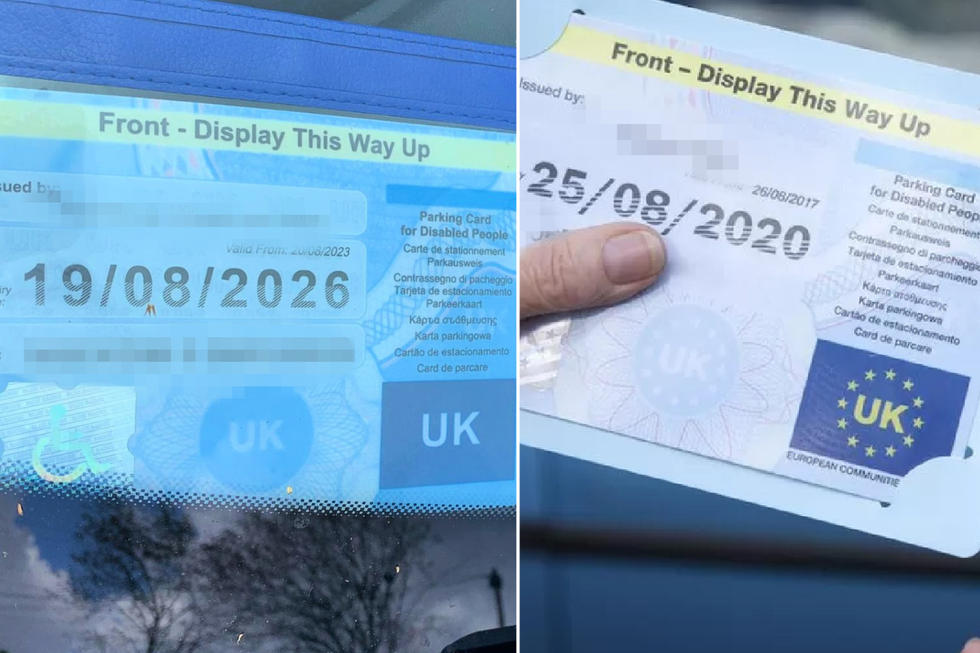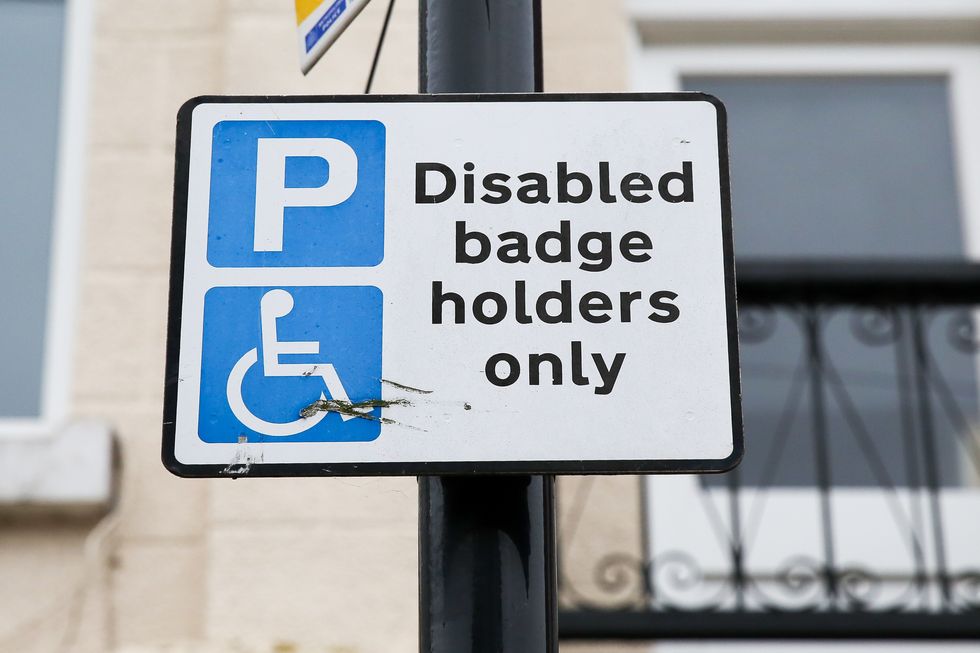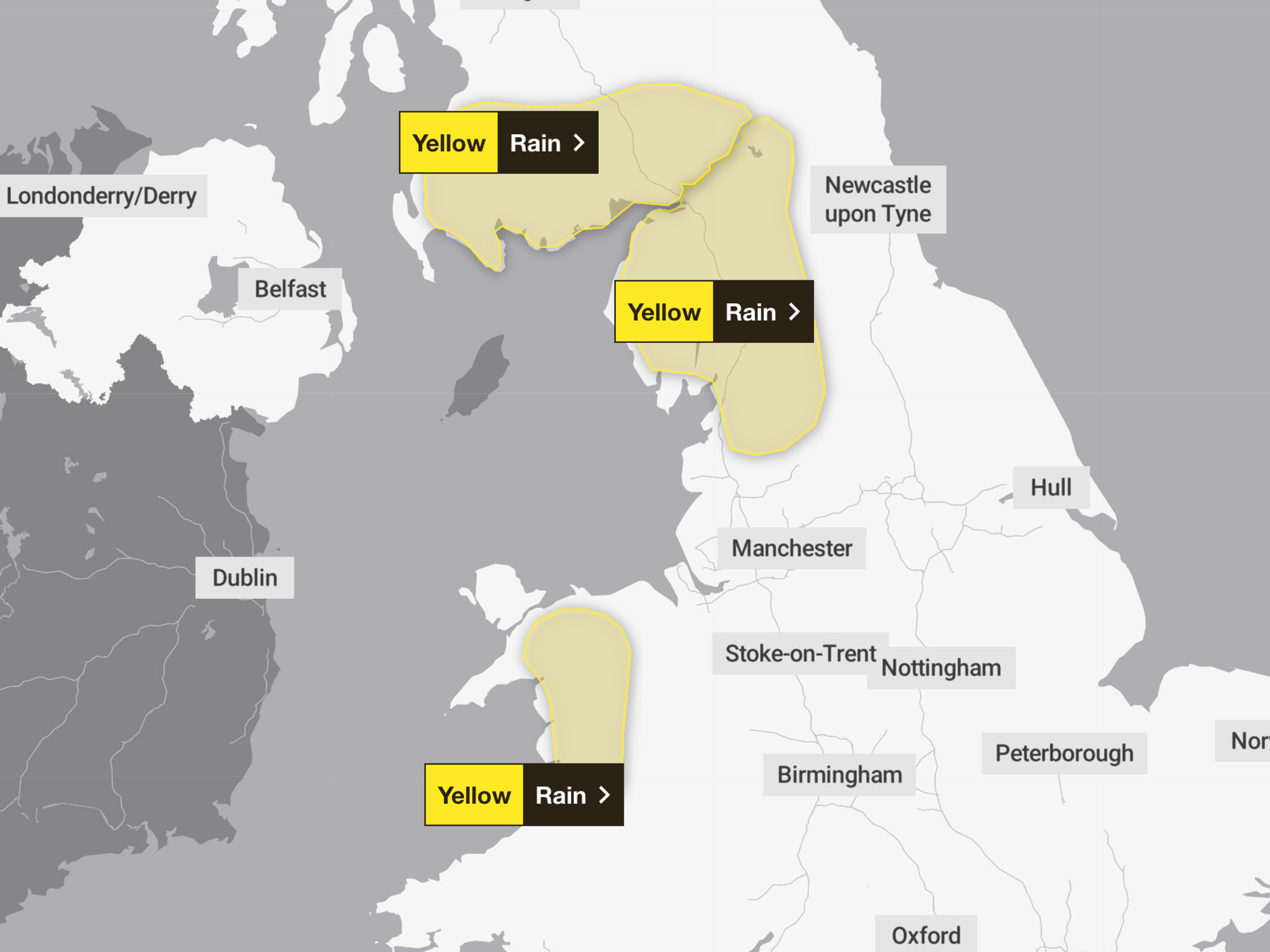Blue Badge holders warned of £1,000 fine when parking as drivers risk breaking Highway Code rules

'They are a lifeline for people with disabilities or health conditions, enabling them to park closer to their destination'
Don't Miss
Most Read
Latest
Blue Badge holders are being urged to follow the rules or they could face hefty fines, as all motorists are reminded of guidance in the Highway Code.
Blue Badges allow drivers who may be disabled or have health conditions to park closer to their destination and can be seen on cars across the country.
A Blue Badge can be purchased in England for just £10, while it's twice as expensive in Scotland. Motorists in Wales do not need to pay.
They normally last up to three years, although Government guidance states that drivers must reapply for the Blue Badge before the current one expires.
Do you have a story you'd like to share? Get in touch by emailing motoring@gbnews.uk

Blue Badge holders are being urged to ensure they avoid expensive fines
| BBFI/GETTYThere are clear rules around the use of the badges and drivers could be slapped with a £1,000 fine if someone misuses the badge, as well as the badge being confiscated.
Rule 239 states that if a motorist has to stop on the roadside, they should not park too closely to a vehicle displaying a Blue Badge.
It reminds motorists that the occupant of the vehicle may need more room to get in, which could cause them issues if someone else parks too closely.
Rule 241 outlines how drivers must not leave their car in spaces reserved for specific users - such as Blue Badge holders, residents or motorcycle riders - unless they are entitled to do so.
When applying for a Blue Badge, the local council should inform the driver why they aren't eligible for a Blue Badge, although motorists are able to get them to reconsider.
Some people will automatically qualify for a Blue Badge if they are over three years old and have at least one of a number of conditions.
These include:
- Receiving the higher rate of the mobility component of the Disability Living Allowance (DLA)
- Receiving a Personal Independence Payment (PIP) because they can’t walk more than 50 metres
- Are registered blind (severely sight impaired)
- Receiving a War Pensioners’ Mobility Supplement
- They have received a lump sum benefit within tariff levels one to eight of the Armed Forces and Reserve Forces (Compensation) Scheme and have been certified as having a permanent and substantial disability that causes inability to walk or very considerable difficulty in walking
- They receive the mobility component of PIP and have obtained 10 points specifically for descriptor E under the "planning and following journeys" activity, on the grounds that they are unable to undertake any journey because it would cause them overwhelming psychological distress
Speaking previously to GB News, Paul Slowey, founder and chief executive of Blue Badge Fraud Investigations (BBFI), highlighted how Blue Badge holders had been targeted more frequently in recent years by opportunistic thieves.
Data from the London Assembly found that 1,230 Blue Badges were stolen in 2014. However, in 2023, a staggering 6,415 were reported stolen - an increase of 421 per cent.
Slowey added: "Blue Badges are not just a piece of paper; they are a lifeline for people with disabilities or health conditions, enabling them to park closer to their destination.
"It's crucial to understand that behind every single one of those 6,415 stolen badges is a person or a family unit whose freedom, independence and security have been shattered.
LATEST DEVELOPMENTS:
- Motorists issued urgent warning of further car tax hikes launching within months despite major U-turn
- Paris to restrict cars from city centre and could see drivers slapped with fines - 'Important new step'
- Drivers warned of long delays as overturned lorry causes 'significant' fuel spill and day-long road closure

Blue Badge theft has increased in recent years
| GETTY"This is far from a 'victimless crime'. For legitimate users of the scheme, what we may take for granted as "simple tasks" like hopping on the tube or grabbing a taxi can become arduous, costly, and, at times, even impossible."











